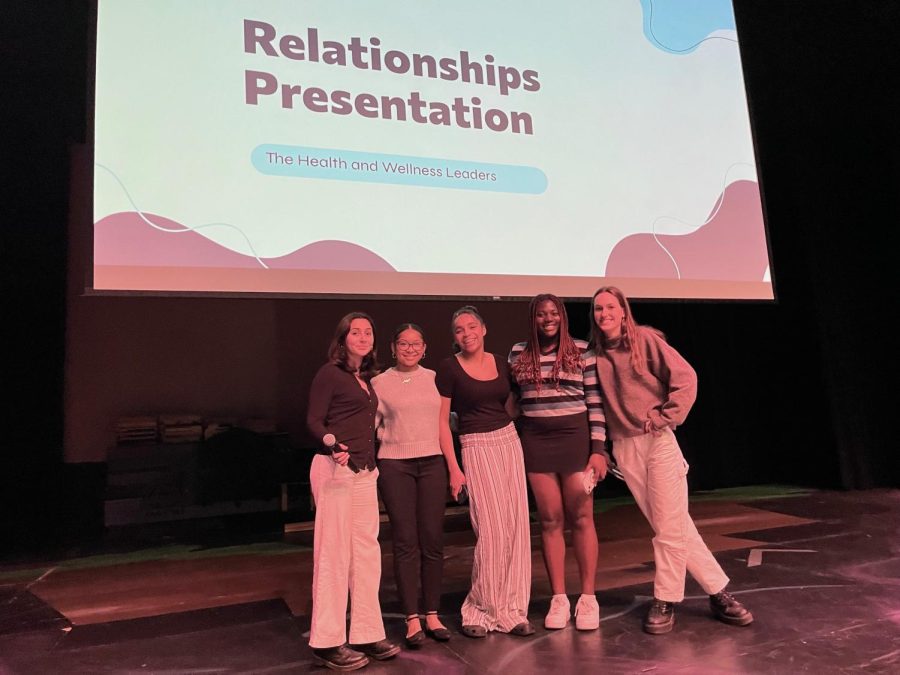Teen Relationships: Health and Wellness Presentations
An overview of the presentations created by student leadership team Health and Wellness
February 28, 2023
Teenage relationships are not exactly known for healthy patterns or stability. Even as a group, teenagers are often labeled as overly emotional, immature, and unreliable. It’s hard to blame teenagers for these issues when they are faced with an onslaught of hormones, educational pressures, social dilemmas, and more. However, these stereotypes become problematic when they are used to normalize violent and toxic relationships.
This semester, the Health and Wellness leadership group created presentations highlighting this exact issue: unhealthy relationships among teenagers. Every student at Bishop O’Dowd was required to attend the presentation during their flex period and engage with these important topics. There were two main parts of the presentation: the first was an explanation of healthy relationships and what they look like, and the second was about signs of unhealthy relationships and resources for aid. The presentation covered topics such as consent, self-love, communication, boundaries, and trust — all key aspects of creating respectful and healthy relationships.
Unfortunately, abusive and toxic relationships are very common for teenagers and not something that people should take lightly. According to Domestic Violence Services, “Nearly 1.5 million high school students nationwide experience physical abuse from a dating partner in a single year.” What is even more alarming is that teenagers engaging in toxic and abusive relationships are likely to grow into adults and participate in these behaviors. Not to mention, there is little to no initiative to prevent these statistics from multiplying and worsening. This is why the presentations that Health and Wellness leaders created are so important. They help build the foundation of knowledge of healthy relationships with one’s self and others so that students can develop the tools to navigate their current and future environments. Education promotes safe action.
To help get an insight into these presentations, Leila Dubon ’23, Health and Wellness leader who helped develop and present the project, volunteered to be interviewed.
The first question presented to these leaders was: “Why do you think presentations like these are important?”
In response, Leila remarked, “We wanted to give people some resources and tools to help them manage relationships in their own lives or ones that they see other people struggling with. These presentations are important because topics such as relationships and mental health among youth are very stigmatized.”
Unfortunately, her words ring of truth. Relationships, and even the mental health of teenagers, are delegitimized and ignored. In fact, according to the CDC, in an article written in 2019 called Mental Health Treatment Among Children Aged 5–17 Years: United States it was found that only “10.0% of children had received counseling or therapy from a mental health professional.” These resources are essential for teenagers, especially since unhealthy relationships can worsen previous mental health issues, negatively impact their grades, and even affect other existing relationships. Presentations like these spread awareness and help to combat the stigma surrounding unhealthy teenage relationships, as well as protect teenage mental health.
The last question was: “Will you be doing more presentations in the future? If so, what will the topics be?”
Leila responded, “We hope to do at least one more presentation this semester and plan that future Health and Wellness leaders will continue our Peer Education model. We will base future topics on the feedback that we received from students in the survey we gave at the end of the presentation because we want to hear directly from the students.” She emphasized the importance of feedback from students for the new presentations. Basing future presentations on peer input is the best idea for creating resources that are actually helpful and relevant to student needs.


